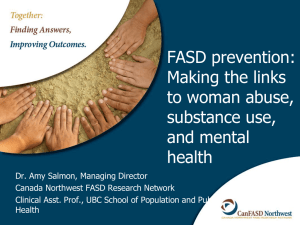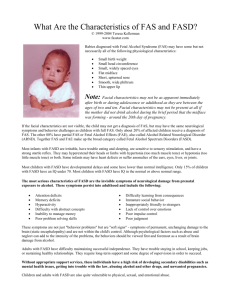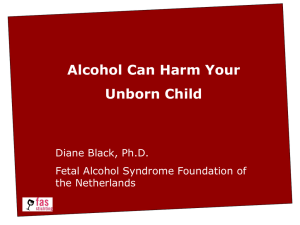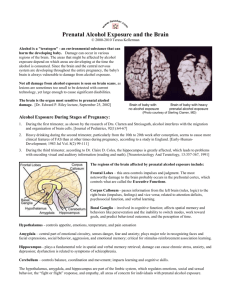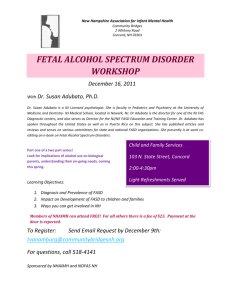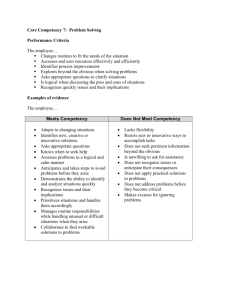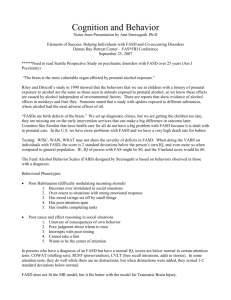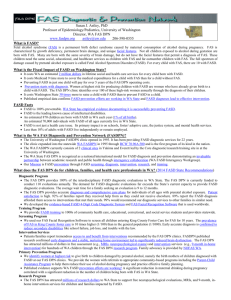Competency and Capacity
advertisement
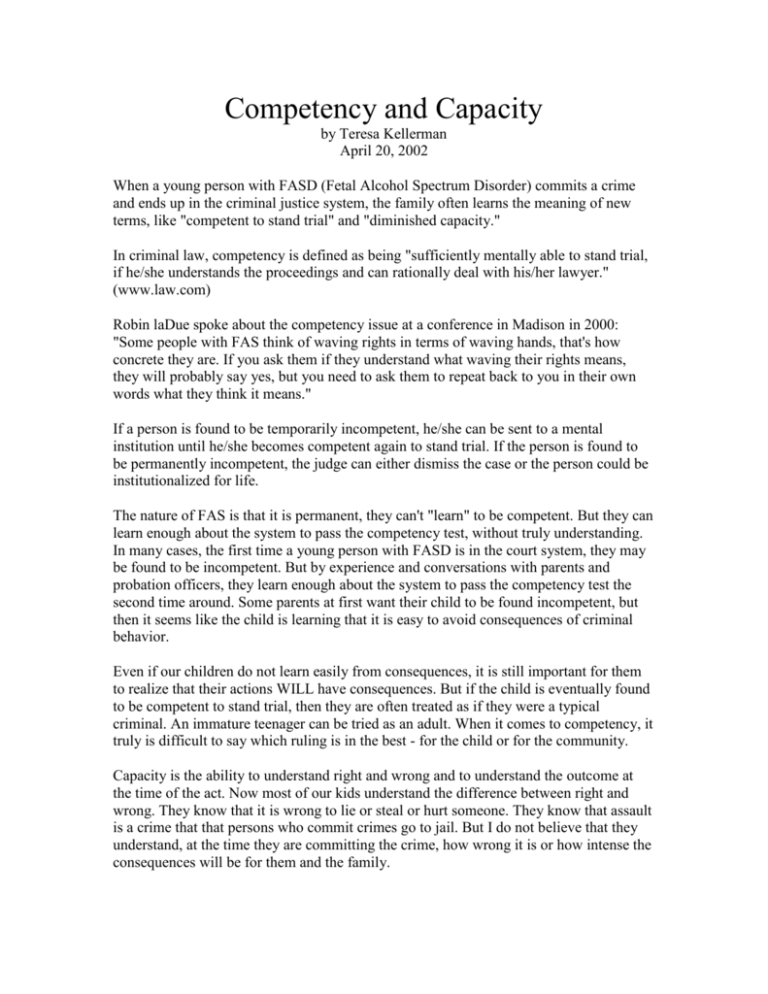
Competency and Capacity by Teresa Kellerman April 20, 2002 When a young person with FASD (Fetal Alcohol Spectrum Disorder) commits a crime and ends up in the criminal justice system, the family often learns the meaning of new terms, like "competent to stand trial" and "diminished capacity." In criminal law, competency is defined as being "sufficiently mentally able to stand trial, if he/she understands the proceedings and can rationally deal with his/her lawyer." (www.law.com) Robin laDue spoke about the competency issue at a conference in Madison in 2000: "Some people with FAS think of waving rights in terms of waving hands, that's how concrete they are. If you ask them if they understand what waving their rights means, they will probably say yes, but you need to ask them to repeat back to you in their own words what they think it means." If a person is found to be temporarily incompetent, he/she can be sent to a mental institution until he/she becomes competent again to stand trial. If the person is found to be permanently incompetent, the judge can either dismiss the case or the person could be institutionalized for life. The nature of FAS is that it is permanent, they can't "learn" to be competent. But they can learn enough about the system to pass the competency test, without truly understanding. In many cases, the first time a young person with FASD is in the court system, they may be found to be incompetent. But by experience and conversations with parents and probation officers, they learn enough about the system to pass the competency test the second time around. Some parents at first want their child to be found incompetent, but then it seems like the child is learning that it is easy to avoid consequences of criminal behavior. Even if our children do not learn easily from consequences, it is still important for them to realize that their actions WILL have consequences. But if the child is eventually found to be competent to stand trial, then they are often treated as if they were a typical criminal. An immature teenager can be tried as an adult. When it comes to competency, it truly is difficult to say which ruling is in the best - for the child or for the community. Capacity is the ability to understand right and wrong and to understand the outcome at the time of the act. Now most of our kids understand the difference between right and wrong. They know that it is wrong to lie or steal or hurt someone. They know that assault is a crime that that persons who commit crimes go to jail. But I do not believe that they understand, at the time they are committing the crime, how wrong it is or how intense the consequences will be for them and the family. "Diminished capacity" is defined in the law dictionary as meaning that "although the accused was not insane, due to emotional distress, physical condition or other factors he/she could not fully comprehend the nature of the criminal act he/she is accused of committing, particularly murder or attempted murder. It is raised by the defense in attempts to remove the element of premeditation or criminal intent and thus obtain a conviction for a lesser crime, such as manslaughter instead of murder." Ruling on competency and capacity can be a tricky issue, especially when the defendant has FASD. We certainly want to hold a criminal accountable for his/her actions, based on their cognitive and functional abilities. An IQ test like the Woodcock-Johnson can be administered to see the varying scores in different subtests in areas like auditory memory and visual-spatial coordination. Establishing a person's functional ability can be determined by administering the Vineland Adaptive Behavior Scales (parent version). The Vineland will show that the person with FASD functions at a developmental level far below what the IQ score would indicate. Appropriate assessments like this will likely show the person with FASD has above normal expressive language skills but below normal social skills. If a person with FASD for instance is 16 years old, has the cognitive development of a 12 year old, but the social development of a 6 year old, then we can hold the person accountable accordingly. My challenge is to hold the court system and social services system accountable as well. Information about FAS disorders is freely accessible on the Internet. Trainings for agencies and court systems are available and affordable (visit www.fasstar.com and www.fasalaska.com). Given the accessibility of quality FAS information, our courts are responsible for their own "diminished capacity" when it comes to dealing with FAS issues in the judicial system. Our courts need to answer for their own questionable competency when ruling on cases that involve persons with FASD.
